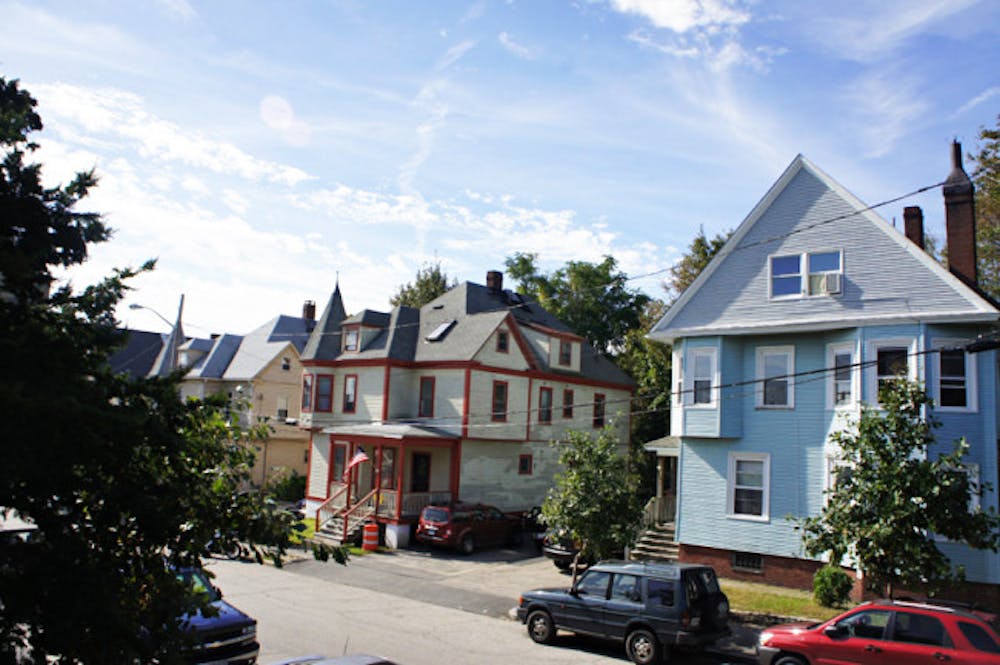Alums from as far back as the 1970s gathered on College Hill for the Brown Association for Cooperative Housing’s 45th reunion Saturday, reminiscing about the group’s progressive beginnings and how Brown has changed in the past few decades. Attendees listened to a variety of alumni and faculty speakers, lounged on the Main Green and toured a notably different campus than the one they left.
BACH, now called Providence Eastside Association for Cooperative Housing, was founded in 1970 during the Vietnam War as a student-led community independent from the University. Steve Cowell ’72 helped create BACH as part of a Group Independent Study Project after GISPs were introduced alongside the open curriculum in 1969.
Members of BACH were responsible for their own rents, community-shared meals and home repairs. “It was intended to provide an alternative lifestyle to the capitalist system,” the group’s website reads.
Cowell described his inspiration for the GISP at the event’s symposium portion. As a first-year, he was invited to live in Roger Williams Housing Project and was the only white person among primarily black residents. “They said to me, ‘Welcome to the ghetto. This is what it’s like.’ I learned more in those two months than I ever will learn in my life,” Cowell said. This experience inspired him to “address housing in a collaborative way. White and black, rich and poor — working together,” he said.
Susan Colwell ’73 highlighted the fact that BACH arose from an era of activism. “We took over Sayles Hall and made it into a student strike center in the Spring of 1970 and, of course, my dad came to visit that weekend. He was not impressed,” she said to laughter from the audience.
Colwell also helped launch the Sarah Doyle’s Women Center around the time when Professor of Anthropology Louise Lamphere was denied tenure, prompting a 1974 gender discrimination lawsuit against Brown.
Stephen Nelson, a senior scholar in the Leadership Alliance at Brown, explained how Brown has changed since the 1960s in the broader context of higher education. He discussed failures and successes of past presidents, paying particular attention to efforts to hire minority faculty members, which began in the 1990s. Nelson also noted Brown’s increasingly impressive reputation, the expansion of campus buildings and hikes in tuition.
Anita Flax ’81, who lived in a co-op on Waterman Street in the 1970s, said not only the physical appearance, but also the underlying attitudes of campus have changed since her time as an undergraduate. To illustrate her point, she quoted the “Manual for Women Students in Dormitories,” which dictated that women must wear skirts or dresses to meals, and “on the evening of a formal dance, curlers are permitted at dinner, but they must be attractively covered.”
“It was all about the great people, and it was the best thing I ever did in my life,” Flax said of her time living in the co-op.
Ronald Lewis, resident of the Waterman co-op, provided an overview of how BACH currently operates.
“At our corporation meetings these days, we talk a lot about our imprint on Providence, the accessibility of our space and how to be a positive influence on the greater Providence community,” Lewis said.
“It was in the co-ops that I began to deeply encounter a host of radical, creative, kind souls who helped me embark on what has become a life-long endeavor of consciousness raising,” he said. “This started with food but it quickly goes into thoughts of community.”
Tony Affigne PhD ’76 MA ’91 PhD ’92, a political science professor at Providence College, discussed political changes that occurred in the ’70s, noting a theme of cooperation. The 1968 black student walkout began the series of activism that shaped Brown’s image, he said. University administrators “will always have problems with their students because they market to the most innovative, creative and independent-minded people in America,” he added.
Barnaby Evans ’75, BACH alum and creator of Waterfire, concluded the symposium with a presentation on the changes Providence has undergone in the past five decades. He showed images of the way Providence looked in the ’70s — barren and covered in railroads — juxtaposed with Providence today.
After the symposium, David Ray ’77 spoke of his longstanding friendship with Elliott Negin ’76, a coordinator of the reunion. Negin said he looks back “fondly on those days. We worked together and made a home for ourselves.”





